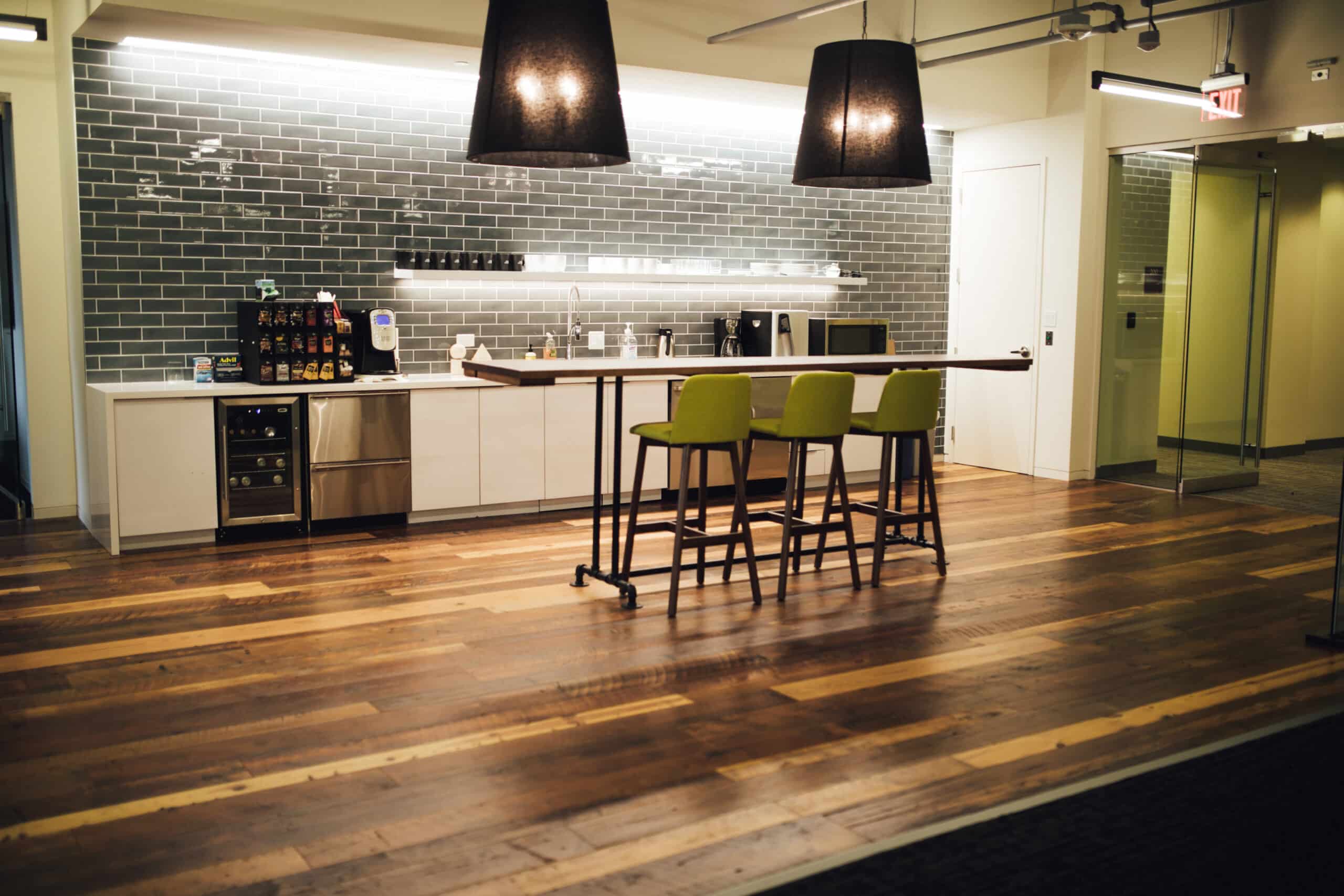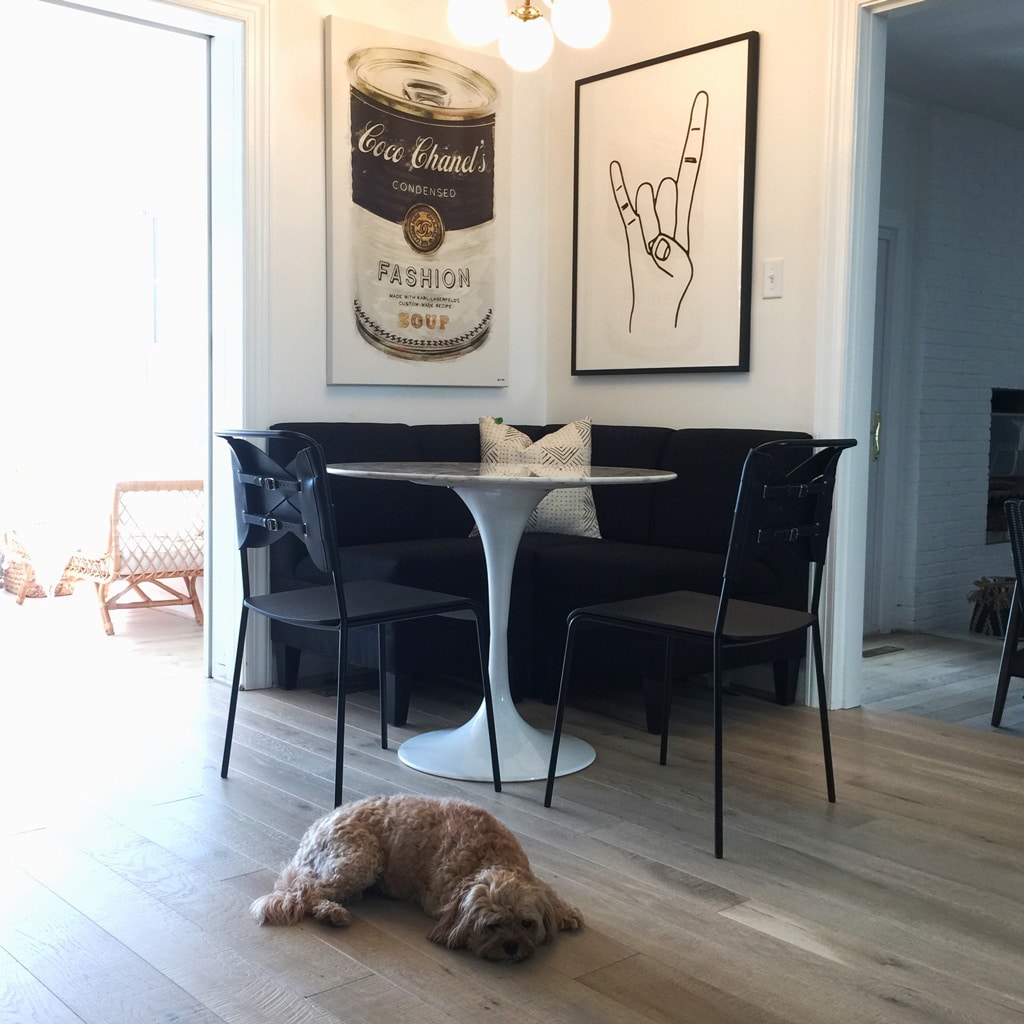Sustainable Flooring Choice
Engineered wood is used to make everything from timbers to flooring and is touted as a sustainable alternative to solid hardwood. Knowing what sets this material apart from other man-made products can help you decide whether engineered wood flooring is right for your home.
What is Engineered Wood?
Sometimes called composite wood, engineered wood flooring is manufactured using the strands, particles, and veneers leftover from other production tasks. Plant fibers such as bamboo, hemp, and sugarcane are also used in some composites. During the engineering process, layers of wood are glued together to create a final product known for its stability and longevity.
Putting new wood together from old allows for nearly endless customization, so wood products can be created for specific uses. This results in uniform finished pieces that are less susceptible to warping and other deformities that can occur in natural woods. For flooring, multiple ply layers are fused together to create sturdy, flat boards that can stand up to decades of use.

What Makes Engineered Wood Flooring Sustainable?
Rather than cutting down trees to make flooring and other products, the engineering process recycles wood that can’t be used in other projects. There will always be scraps leftover from sawmills and the manufacturing of goods, and engineering ensures that these pieces don’t go to waste.
For every square foot of regular hardwood flooring, four square feet of engineered wood can be made. The amount of resources reused and the number of trees saved per square foot adds up fast. Plus, companies are always working to increase the efficiency of the manufacturing process to use fewer resources in all areas of production.
Engineered vs. Green
Although the terms “sustainability” and “green” are often used interchangeably when describing engineered wood floors, not all manmade wood products are as eco-friendly as they seem. True green products use low-VOC adhesives to prevent the possibility of chemical contamination in homes. However, some low-end products still rely on the glue that contained formaldehyde, which can off-gas into the air and causes a variety of unpleasant symptoms, including:
• Coughing and wheezing
• Allergic reactions
• Irritation of the skin, eyes, nose, and throat
When purchasing engineered flooring, always look for products that use formaldehyde-free glue and are made by manufacturers that adhere to honest green practices.

Benefits of Choosing Engineered
Opting for engineered instead of hardwood floors offers a wealth of benefits for you and your home:
• Engineered products look just like real wood.
• Pieces are easy to customize and install.
• Man-made composites have a high level of moisture resistance.
• Engineered floors can be sanded and refinished multiple times as desired.
• Exceptional durability provides protection against frequent foot traffic.
By using engineered wood, you lessen the impact that your design choices have on the environment without sacrificing the beauty associated with wood flooring. As long as you ask the right questions and purchase products from a reputable manufacturer (like Cochran’s Lumber), you’ll enjoy the same look, feel and longevity of solid wood while maintaining a lower carbon footprint.
Cochran’s offers a wide range of engineered wood flooring made in America pre-finished for more efficient installation and care. Contact us today to learn about our custom finishes and more.
Cochran’s Lumber is proud to be the leading provider of spectacular floors for homes, offices, and retail spaces across America! Our newly redesigned showroom was thoughtfully designed to make the selection of flooring and finishes exciting and simple. We feature a variety of new and reclaimed flooring products and many new and unique finishes.
We are proud to offer an inviting space where customers can come and get a clear visual of the many types of hardwood flooring options that we offer, and feel comfortable at the same time.
Visit our showroom today in historic Berryville, VA (only 50 miles west of Washington D.C) or give us a call at 1(877) 297-8331.





